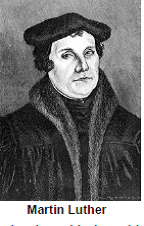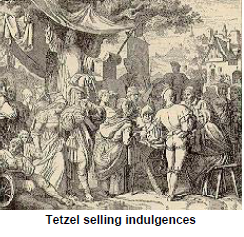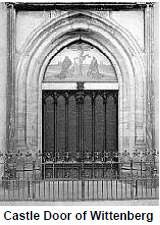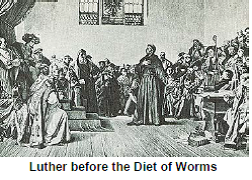Fearless Monk Defies Mighty Empire
1 Samuel 17:41-47, “And the Philistine came on and drew near unto David; and the man that bare the shield went before him. And when the Philistine looked about, and saw David, he disdained him: for he was but a youth, and ruddy, and of a fair countenance. And the Philistine said unto David, Am I a dog, that thou comest to me with staves? And the Philistine cursed David by his gods. And the Philistine said to David, Come to me, and I will give thy flesh unto the fowls of the air, and to the beasts of the field. Then said David to the Philistine, Thou comest to me with a sword, and with a spear, and with a shield: but I come to thee in the name of the LORD of hosts, the God of the armies of Israel, whom thou hast defied. This day will the LORD deliver thee into mine hand; and I will smite thee, and take thine head from thee; and I will give the carcases of the host of the Philistines this day unto the fowls of the air, and to the wild beasts of the earth; that all the earth may know that there is a God in Israel. And all this assembly shall know that the LORD saveth not with sword and spear: for the battle is the LORD’S, and he will give you into our hands.”
The text above is well known to all Christians. It is the battle between David and Goliath. It tells us how God can use the faithful and true (though small, weak, and despised) to conquer and defeat the rich, proud and powerful who are wicked, evil and wrong in their ways, and who are against Him and His Word.
In verse 45, David went against Goliath with just the name of the Lord. “Then said David to the Philistine, Thou comest to me with a sword, and with a spear, and with a shield: but I come to thee in the name of the LORD of hosts, the God of the armies of Israel, whom thou hast defied.” “What shall we then say to these things? If God be for us, who can be against us?” (Rom 8:31). One with God is majority.

In the 16th century, there was a fearless monk who defied a mighty empire. Who was this fearless monk? He was none other than Martin Luther. Luther was a very devout Roman Catholic monk who loved the church and its traditions. The Roman Catholic Church taught that the forgiveness of sins could only be obtained by doing good works. This was what he said about his experience as a Catholic monk,
I was indeed a pious monk, and
followed the rites of my order more
strictly than I can express. If ever a
monk could obtain Heaven by his
monkish works, I should certainly
have been entitled to it.
Luther did all his church required of him but the more he tried to work for his salvation, the more miserable he felt—he just could not free himself from the heavy burden and guilt of sin.
Then one day he opened the Scriptures and read Romans 1:17, “For therein is the righteousness of God revealed from faith to faith: as it is written, The just shall live by faith.” Romans 5:1 says, “Therefore being justified by faith, we have peace with God through our Lord Jesus Christ.” By the grace of God and the convicting power of the Holy Spirit, the gospel light shone into his mind and heart, and he finally understood and believed that salvation was purely by faith and by faith alone, not by any work that he could do.
Little did he know that God was preparing him to spearhead the Reformation movement in Germany.

It all happened when John Tetzel, Rome’s licensed seller of indulgences (forgiveness tickets) went about his business calling on people to buy their way into heaven. He was such an adept salesman that he had an enticing jingle, “When the money in my box clinks, the soul in purgatory springs.” This infuriated Luther because the Bible taught that salvation was free of charge, the penalty of sin was paid in full by Christ (Rom 6:23). He was moved to write 95 theses against indulgences and on October 31, 1517, nailed his 95 theses on the castle door of Wittenberg which publicly challenged the authority of the mighty Roman Catholic Church.
When the Pope refused to put a stop to the superstitious doctrine and sale of indulgences, and repent of all other unbiblical beliefs and practices, he denounced the Pope as an antichrist.
On June 15, 1520, the Pope called Luther a stubborn and dangerous heretic, and issued a bull against the reformer and ordered the burning of all his writings. When the papal bull reached him, he took it and cast it into the fire saying, “It is not the Pope who has excommunicated me but I who have excommunicated the Pope.”

The Roman Catholic Emperor Charles V summoned Luther to appear before him to answer the Pope’s charges against him, assuring him that no harm would befall him. But Luther’s friends warned him not to go and that such a promise was unlikely to be honoured noting that John Huss was made such a promise but was eventually burnt at the stake. Luther said to his friends, “If there are as many devils in Worms as tiles on the housetops I will still go there.” He was so filled with the Spirit and with holy courage that no one and nothing could stop him from testifying for the Lord.

On April 16, 1521, Luther arrived at Worms. The city streets were crowded. Everyone wanted to see who this lone “heretic” was who dared to stand against the might of the Holy Roman Empire. As he made his way to the city hall for trial, one famous army general said to him,
My poor monk, my poor monk, you are
on your way to make such a stand as I
and many of my knights have never done
in our toughest battles. If you are sure of
the justice of your cause, then forward
in the Name of God, and be of good
courage—God will not forsake you.
When Luther entered the assembly hall, he was astounded by the host of political and religious dignitaries. Besides the King and the Pope, there were princes and dukes, archbishops, bishops and abbots. There were a total 206 VIPs in attendance. The chief prosecutor was Prof Johann Eck who began the trial by asking Luther whether he was the author of the books displayed on the table, and whether he would retract all the doctrines of which the church disapproved. Luther acknowledged that he was the author of those books, and asked for leave to think about whether he should withdraw his teachings or not. Prof Eck allowed Luther time to reflect but required him to give his answer by the next day.
That night, Luther prayed to the Lord for grace to help in his time of need. He prayed,
O God, my God, be with me and
protect me against my enemies of the
world. Thou must do it, Thou alone,
for in me is not strength. It is thy
cause, O God, not mine. On thee I
rely, not on man, for that would be in
vain. O God, dost Thou not hear? Do
not hide thy face from me. Thou hast
called me, now be my stay. I ask it in
the Name of thy Son, Jesus Christ,
my protector, my shield and my
defence.
The next day, back in court, Prof Eck called on Luther to withdraw all his teachings on salvation. Luther filled with the Spirit replied in Latin and then in German,
Unless I am convinced by testimonies
of the Scriptures or by clear
arguments that I am in error—for
popes and councils have often erred
and contradicted themselves—I
cannot withdraw, for I am subject to
the Scriptures I have quoted; my
conscience is captive to the Word of
God. It is unsafe and dangerous
to do anything against one’s
conscience. Here I stand; I cannot
do otherwise. So help me God.
All hell broke lose after he uttered those courageous and uncompromising words. There was a great uproar and chaos. The Emperor was furious and stormed out of the meeting hall saying, “How could a single monk be right and the testimony of a thousand years of Christianity be wrong?” The Emperor got it all wrong. It was not this single monk, but the unchanging and unchangeable Word of God that is always true and right versus a thousand years of corrupt principles and practices of an apostate Church.
One lonely monk versus the entire Roman establishment, “for the word of God, and for the testimony of Jesus Christ.” (Rev 1:9). When the time comes for you to stand alone for Christ and His Word, will you be faithful, or will you be a failure? May the Lord help us. JK


